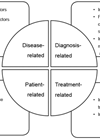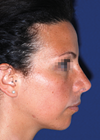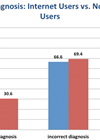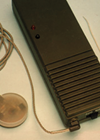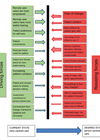ENT features archive for 2017
Can we prevent chronic rhinosinusitis?
The old adage ‘prevention is better than cure’ is considered by Professor Hopkins in respect to chronic rhinosinusitis, a condition affecting around 10% of the adult population and associated with huge impact on quality of life and economic cost. A...
The future of rhinology
Over the last few decades, rhinology has been one of the most dynamic and progressive areas of ENT. Professor Fokkens is perfectly placed to offer insight into the future possibilities that could transform our patients’ care, many of which are...
The future of facial plastics and rhinoplasty
Interest in facial plastic surgery and in particular rhinoplasty has never been greater. From his wealth of experience in the field, Professor Palma outlines the potential problems of this increasing popularity and how they may be addressed, areas on which...
Have we reached our limits in endoscopic skull base surgery?
As being an anterior skull base surgeon becomes the aspiration of many ENT trainees, Professor Nicolai gives his personal insights into the future for this exciting subspeciality. Having been directly involved in the evolution of transnasal endscopic surgery (TES) since...
How trainees can make major contributions to practice
At a time when many of our trainees feel poorly supported and disheartened, the formation of a National ENT Trainee Research Network (Integrate) has been a major advance, enabling them to develop and execute research projects directly relevant to clinical...
Are ENT patients who research their symptoms online better informed?
All our patients look up their symptoms online before they visit us, don’t they? And patients who do so are better informed than those who don’t, right? Well, that’s not actually the case… The ‘information era’ More information is now...
Cochlear implants: recipient stories
The most powerful evidence for the remarkable achievements made with cochlear implants over 40 years comes from the life-changing, personal stories of those who have benefited from the technology. James Rylance I first noticed a problem with hearing when I...
Multi-channel cochlear implants: past, present and future
Forty years since the first multi-channel devices were implanted, who better than Ingeborg Hochmair, who has been a key figure throughout their evolution, to offer her thoughts on the past, present and future of multi-channel cochlear implants? Read on for...
Improving cochlear-implant performance in the short- and medium-term
Can bespoke cochlear implant programming strategies reduce the variability seen in patient performance with an implant? Bob Carlyon reviews the current situation and gives us a glimpse of the future. Although many cochlear implant (CI) patients understand speech well in...
Cochlear implant care: putting patients in charge
Should patients take charge of their own cochlear implant care? Helen Cullington presents a compelling case that will provoke discussion in implant centres. Around 1400 people receive a cochlear implant in the UK each year. Patients require lifetime annual follow-up...
The role of objective measures and imaging to optimise cochlear implant outcomes
Should we be using new or novel objective measures and imaging to assist with our cochlear implant patients? Debi Vickers and Shak Saeed describe current clinical techniques and present advances that have the potential to optimise outcomes. Introduction It is...
Worldwide picture of candidacy for cochlear implantation
Who should get a cochlear implant? Candidacy is one of the most important and widely discussed topics in the field of cochlear implantation. Here, Chris Raine and Debi Vickers outline cochlear implant candidacy in the UK, and compare this with...


